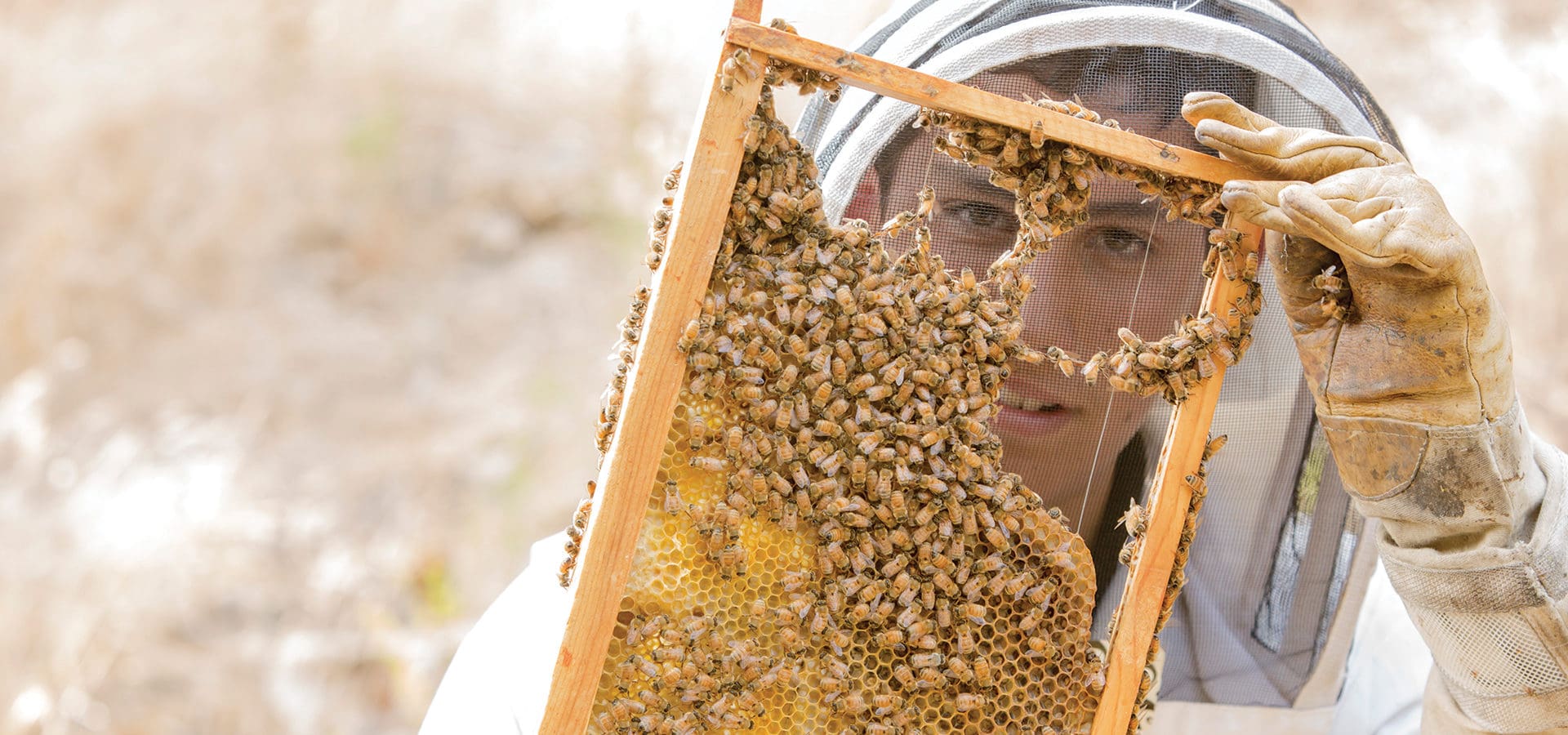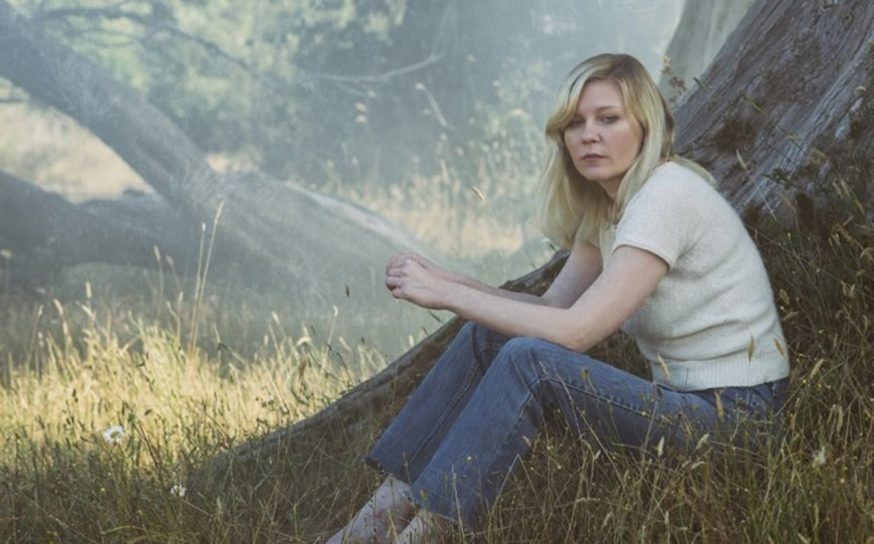A Carmel Teen Turns a Passion for Pollinators Into a Buzzing Family Business
Hive mentality.
-
CategoryArtisans, Farm + Table, Makers + Entrepreneurs, Small Businesses, Sustainability
-
Written byMichele Garber
-
Photographed byCarol Oliva
It’s often said that someone discovering his or her passion has been “bitten by the bug.” In Jake Reisdorf’s case, it’s fair to say he was “stung by the bee.” Throughout his youth, Jake was fascinated with all insects—especially pollinators. When he was 11, he took a beekeeping course with his father that would have a lasting impact on him. “I just thought it would be something fun to do with my dad,” he shares.
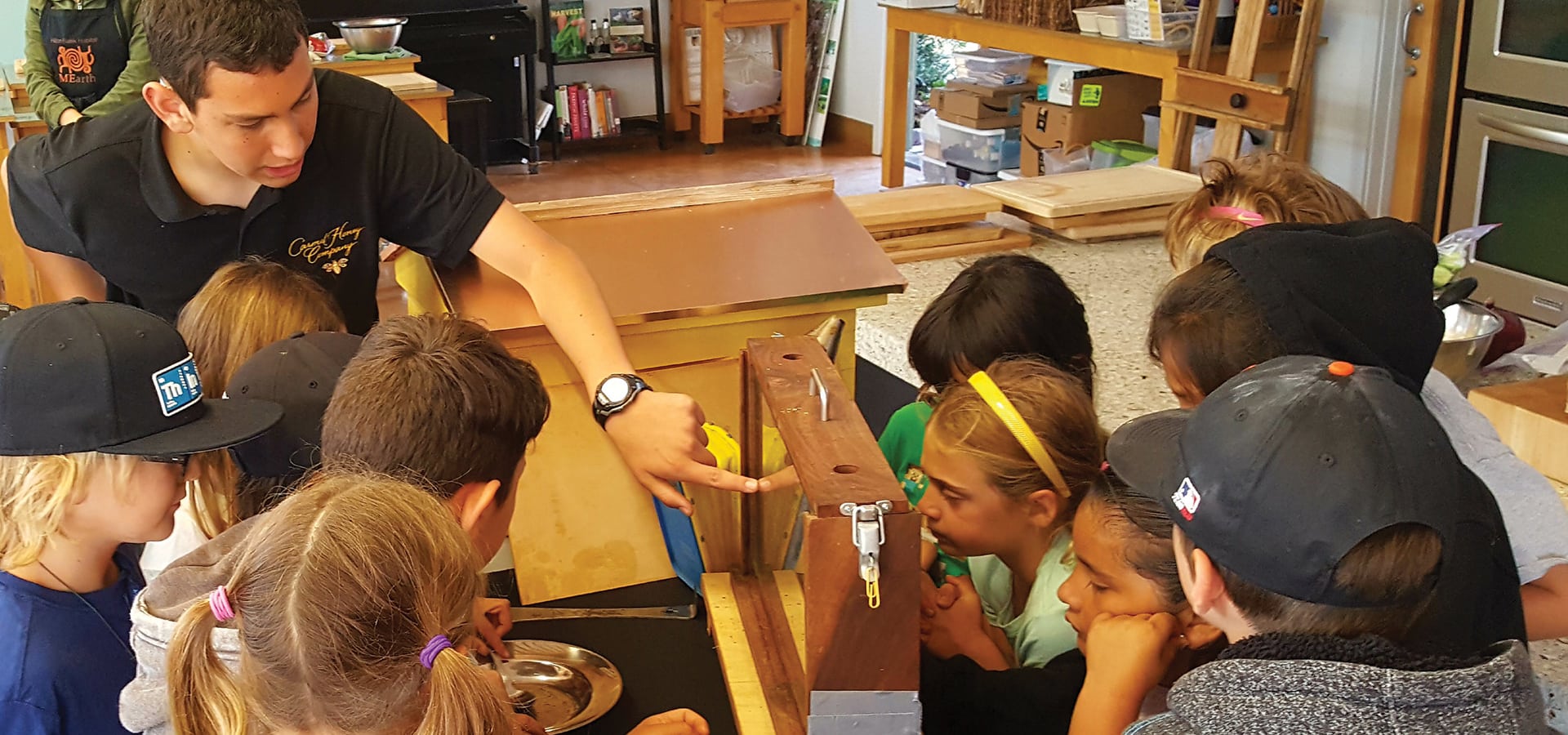
A couple months later, Jake’s fifth grade class embarked on a project-based educational assignment. Each student was assigned a real-world occupation. Jake was given the career of web designer. Always a dedicated student, Jake wanted to create a killer website that would earn him an A and make a strong impression on his teacher and classmates.
Fresh off his beekeeping experience, he thought, “What if I make a website inspired by the beekeeping course and share my newly acquired knowledge with my peers?” Jake used GoDaddy to establish a domain name and build a site. Then he infused his website with his newly acquired robust knowledge of all things honeybee.
When Jake presented his project, his classmates were indeed impressed. They wanted to know how he knew so much about bees, if he had a hive and where they could get his honey.
Though only a fifth grader, Jake sensed the buzz around his beekeeping passion and decided to pursue it further. With his parents’ blessing, he started his first hive in the family backyard. With their support, Carmel Honey Company was born.
“Everyone keeps congratulating me on our success, even though I’ve barely made a mark. I hope to keep expanding the business.”
Before he could start a hive, Jake realized he would need to learn much more. In fact, he wanted to become a beekeeping expert.
“When I first started off, I realized very quickly that bees are not like dogs or cats,” he says. “It actually takes a lot of knowledge to do it. They’re not like a goldfish where you put them in a tank, feed them and they live. They have their own way of doing things, and you need to learn this and learn how to take care of them.”
Jake started going to classes, conferences, taking online courses, and reading books and online articles about bees and beekeeping to figure out what to do. “Some people think that they are going to get into bees, then they get stung and think, ‘Never mind,’” he says. “The first hive I went out to take a look at, I got stung behind the ear. But that didn’t deter me.”
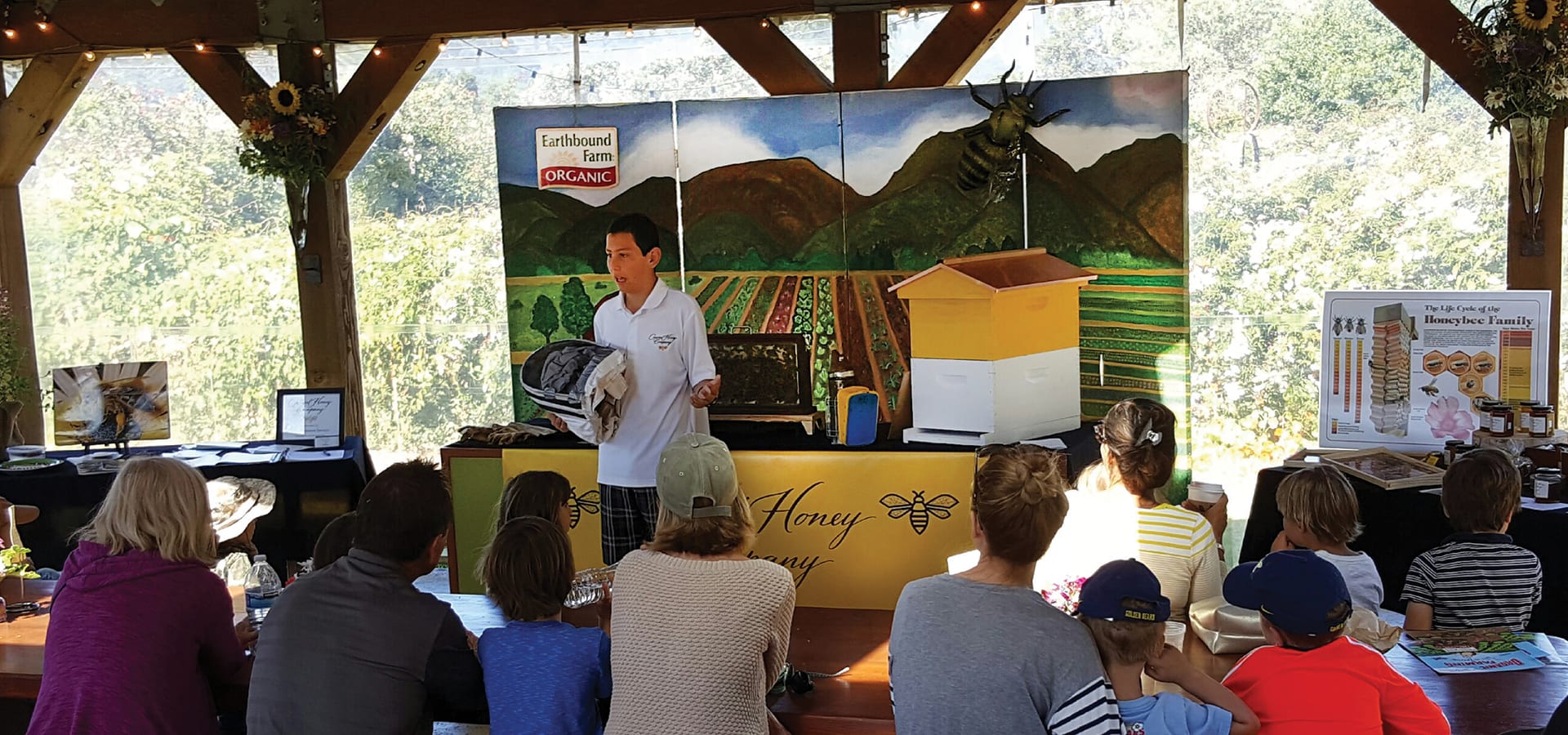
It was through his local beekeeping group that Jake finally got his own hive. Jack, a fellow member in the group, has a bee removal business and offered Jake his first hive if he’d help him remove a hive from the floors of a shed. Jack and Jake extracted the hive, secured the honeycombs and frames, and placed the hive in Jake’s backyard. He was officially a beekeeper with his own hive.
Jake’s enthusiasm for beekeeping wouldn’t have gone far had he not had an exceptionally supportive family. Not many moms would allow their adolescent child to accompany a beekeeper on a hive removal, let alone agree to having a hive in the family yard. Well aware that he has extremely cool parents, Jake muses, “My mom was hoping for something else, but she got bees.”
After starting his first hive, Jake and his family started building Carmel Honey Company. Not only did Jake have to become a beekeeping expert, he also had to develop his business acumen. With no prior experience in web sales, wholesale or retail, Jake got on-the-job education. By the time he was 14, the success of their website led to the opening of the first Carmel Honey Company retail store in Carmel-by-the-Sea.
Jake’s boundless enthusiasm for beekeeping has led to continued growth and success for his company. From his humble start with just one hive, Jake now has 175 hives—enabling Carmel Honey Company to produce and market four types of honey: wildflower, sage, orange blossom and meadowfoam.
In late 2019 Carmel Honey Company opened its second store on Cannery Row in Monterey. The business also sells directly to specialty stores and local chefs.
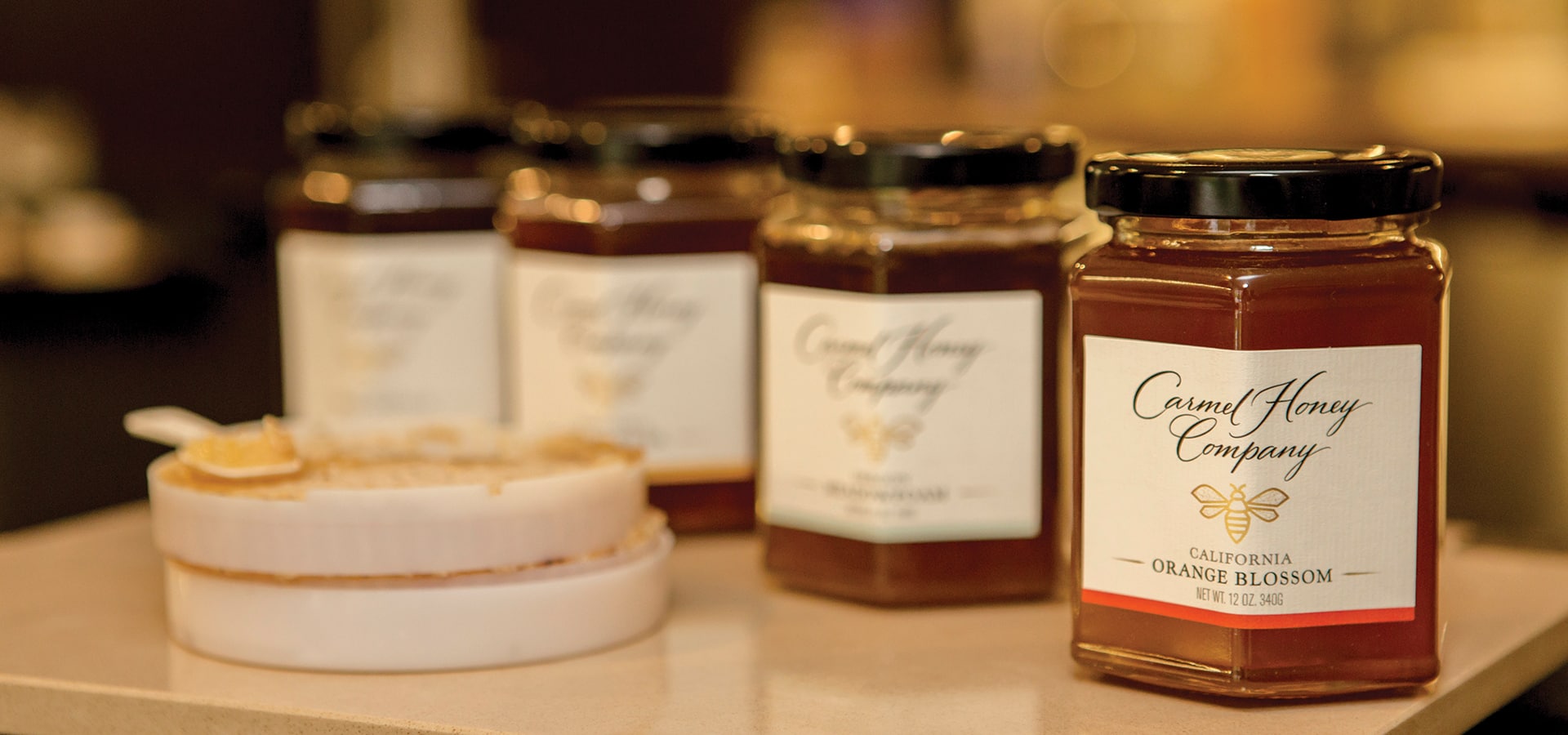
Along with beekeeping, running a successful family business, carrying a full academic load including AP courses, and finding time to enjoy the pursuits of an average teenager, Jake has also become an accomplished public speaker and educator. His comprehensive knowledge of honeybees and his infectious personality wow crowds wherever he goes.
Through Jake Gives Back, the philanthropic arm of Carmel Honey Company, Jake volunteers his time to educate others on the vital importance of honeybees. He addresses groups both large and small—from Girl Scout troops, Kiwanis, and garden clubs to an audience of 750 attendees at an agricultural conference in Anaheim. Jake has spoken multiple times at UC Davis—the gold standard of agricultural universities. His first speaking appearance there was when he was just 12 years old.
Since 2014 Jake has also given an annual financial donation through Jake Gives Back to a variety of organizations that promote and support honeybee research and education.
Now a junior at Carmel High School, Jake looks to his future. “I’m going to stick with my company. Bees have been good to me. And I’ll be a lifelong learner,” he says. “I will probably take some courses at my local community college, but I will stay focused on my company.”
He adds humbly, “Everyone keeps congratulating me on our success, even though I’ve barely made a mark. I hope to keep expanding the business.”
At 17 Jake has many adventures ahead of him. His most ambitious aspiration, or BHAG (Big Hairy Audacious Goal) as he refers to it, is to someday open Pollination World. Living near Monterey, Jake envisions a state-of-the-art, interactive educational facility that will be to pollinators what the Monterey Aquarium is to marine life.
“Pollination World will be a place where we will educate the public about all pollinators: birds, bats, bees, butterflies,” he explains of his vision. “We will have experts from around the world speak about different pollinators and have exhibits featuring pollinators.”
As one bite in every three of the food we eat is the result of a pollinator, scientists agree that their critical role cannot be overemphasized. “We’ve found very quickly that a big part of the business is education,” says Jake. “People can learn about the vital role pollinators play in the economy and actually putting food on your plate.”
Why California Cannabis Dispensaries Get “Essential” Tag But Not Aid
Small business calling foul over perceived double standard.
From the Runway to the Screen, Rodarte Channels the Intoxication of California
The Mulleavy sisters’ first film debuted in September.
Three Northern California Hotels Will Donate Some Proceeds to Fire Relief Efforts
Patronize one of these hotels to put dollars back into the local economy.
Get the Latest Stories




